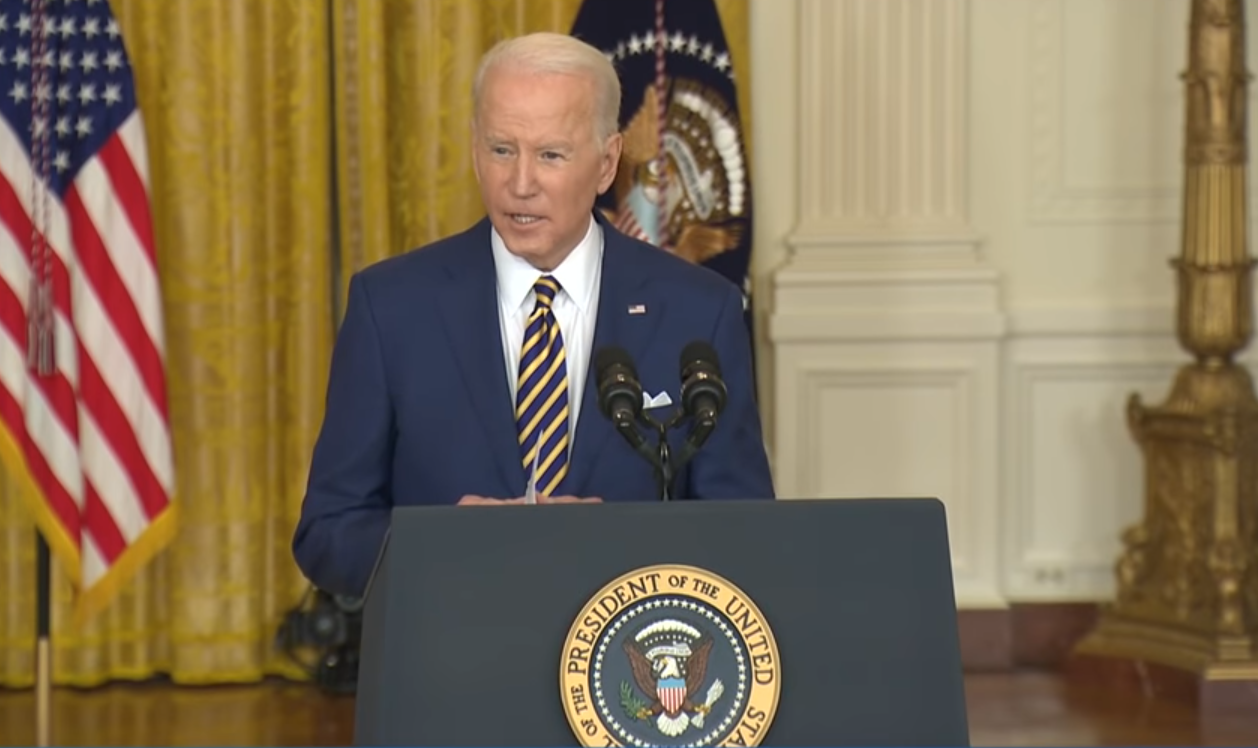The Pentagon put 8,500 U.S. soldiers on high alert Monday after Russia showed no signs of withdrawing its troop presence along Ukrainian borders. Russian maintains the soldiers are there for exercises only and are not an invasion force. The United Kingdom has accused Russia of plotting to install a pro-Russian Ukrainian politician as a replacement for Ukraine’s current leader.
President Joe Biden held an 80-minute teleconference with Western allies and NATO leaders Monday, as well, to discuss what the White House described as “preparations to impose massive consequences and severe economic costs on Russia … as well as to reinforce security on NATO’s eastern flank.” Meanwhile, Russia proposed something the United States says it will never consider: limits on NATO’s eastern expansion, including a bar on Ukraine joining the Western military alliance.
For more on what is happening in Ukraine, Texas Standard spoke with Jeremi Suri, a professor in the Department of History and at the LBJ School of Public Affairs at the University of Texas at Austin. Listen to the interview in the audio player above or read the transcript below.
This interview has been edited lightly for clarity.
Texas Standard: The White House Situation Room meeting and the placement of 8,500 troops on high alert – is that mostly messaging to Russia or does that in any way shift the realities on the ground in Ukraine?
Jeremy Suri: We are well beyond messaging. We are in a true war scare and these forces are being mobilized as deterrents to show the Russians that if they undertake what looks like an invasion of Ukraine that they’re planning, if they undertake that, these forces will be used to limit the extent of Russian military activity and to aid the Ukrainians in resisting Russian aggression.
We should point out they’re not being sent yet. They’ve just been told to reduce their get-up-and-go time from 10 days to five days. But what about diplomatic options? Are there any that remain?
There’s intensive diplomacy going on as we speak, not only between the United States and Russia, but between France and Russia, between Britain and Russia and the Ukrainians themselves who are caught in the middle are trying to talk as well. The two possible off-ramps would be a face-saving set of negotiations that allow Vladimir Putin to say that he’s received something from the West in return for pulling out or some agreement on some other set of issues. But what NATO will not agree to will be that Russia determines who is NATO and who’s not
Texas Congressman Mike McCaul, the top Republican on the House Foreign Affairs Committee, said on Sunday that the United States should impose sanctions now, not wait for Russia to invade. Is that a good idea?
That’s a terrible idea because, at this moment right now, we want to stand firm against aggression by Vladimir Putin or anyone else. But we also want to give him a way out. The history of diplomacy shows that when you have an aggressive actor, unless you really want to go to war, you have to give them an option for deescalating, where they can look like they did not take a bloody nose in the process.
Russia’s second-largest political party in its Parliament, the Communist Party, is now proposing a possible way out, suggesting that Russia recognize two self-declared separatist states in eastern Ukraine: the Donetsk and Luhansk People’s Republics, which are territories that Russia took earlier. Is that something the West could tolerate?
No, because that solution that’s being proposed by the Communist Party, probably on behalf of Vladimir Putin, is a solution that allows Russia to continue dismembering Ukraine. Let’s remember, in 2014, Russia invaded Ukraine and took control of Crimea, which is a valuable territory in the Black Sea. And they’ve been fighting a low-scale war to separate these two provinces in eastern Ukraine from the country. If we allow that, if we legitimize that, what’s to stop them from doing this again? And what’s to stop the Chinese from trying to do the same in Taiwan? We cannot create a world system where aggressive powers are allowed to chew up and annex parts of other powers near them.
Is there a line in the sand that Russia simply can’t cross without starting a war? What’s the next development you’re looking for that would mark a new chapter here?
I think a new chapter would be either the recognition of these two breakaway provinces by Russia, which would be another power grab, making them part of Russia – as they make Crimea part of Russia – or Russian forces crossing into other parts of Ukraine, which is to say, crossing closer to Kyiv, moving farther west.
And that’s what it looks like the Russians are preparing to do. They not only have forces on the Ukrainian border in Russia; they have amassed forces in Belarus, which would allow them to attack from the north. So that would open a new front. And if they open a new front, then we’ve crossed crossed a red line, so to speak.














